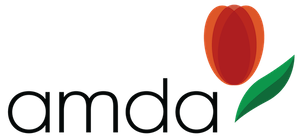Pharming’s first Phase II clinical trial for Pompe’s disease finalised, showing survival, skeletal muscle regeneration and overall improvement of heart and lung functions
Leiden, the Netherlands, March 15, 2000
The bio-pharmaceutical company Pharming Group N.V. (Pharming) of Leiden, the Netherlands (AEX, EASDAQ: PHAR), in conjunction with its joint venture partner, Genzyme General of Cambridge, MA, USA (NASDAQ: GENZ) has finalised with positive results its first Phase II clinical study with transgenic recombinant human alpha-Glucosidase. The study was a single centre open label Phase II study in infantile Pompe patients, performed at the Sophia Children’s Hospital in Rotterdam, the Netherlands, with Dr Ans van der Ploeg, pediatrician and a world expert on Pompe’s disease, as principal investigator. Pompe’s disease is a hereditary, lethal muscle disorder, for which until now there has been no therapy. The human alpha-Glucosidase for the clinical trial in Rotterdam has been produced in the milk of Pharming’s transgenic rabbits at its plant in Geel, Belgium.
Normal levels
After 36 weeks in the study, the four included infantile patients have reached the age range of 12 to 17 months, which is well beyond the mean age of survival in untreated infantile Pompe patients. Repeated muscle biopsies demonstrated that the transgenic recombinant enzyme is taken up by the main target tissue, skeletal muscle, reaching normal levels of alpha-Glucosidase activities, which are comparable to healthy individuals. In the skeletal muscle tissue, the enzyme shows to be active, since on histological evaluation, lysosomal glycogen storage decreased and muscle regeneration was observed.
The most prominent effect was seen on the heart. In untreated patients, the left ventricular posterior wall thickness increases over time as the disease progresses. After start of treatment, the slope of left ventricular posterior wall thickness versus time changed significantly for all four patients, This was in-line with a concomitant significant decrease of left ventricular mass index (a measure for the dimension of the left ventricle) over time, with the largest improvement to less than 30% of the baseline value at the beginning of the study. In addition, symptoms of cardiac instability diminished in all patients,
The treatment appears to have an effect on respiratory function. The two patients included prior to 3 months of age did not become dependent on artificial ventilation and currently they are treated as outpatients, receiving their weekly treatment on a day care basis.
Objective
The objective of this clinical study was to obtain data of safety and efficacy of alpha-Glucosidase. Following a two-week baseline period, four patients were included and treated for 36 weeks for a total of 144 infusions. Patients were started at a dose of 15 and 20 mg/kg per week while during the study, based or monitoring of muscle tissue activity levels, the dose was increased to 40 mg/kg in a once a week intravenous infusion. The enzyme was generally well tolerated, Adverse events reported were fever, malaise, erythematous rash, sweating, hypoxia, flushing and tachycardia. These events were transient and could be well managed. No changes were found in routine hematology and clinical chemistry and no changes in blood pressure during or after infusion were observed.
Skeletal muscle function and strength improved in all patients, with one patient reaching development milestones which are beyond normal observations for untreated patients with infantile Pompe’s disease. Generally the increase in muscle function was best observable in the strength of the arms. Long term follow-up will be needed to assess the final outcome: safety, efficacy and impact on quality of life for these children and their respective families.
Critical breakthrough
“Of course we will not draw final conclusions at this stage of our clinical studies, but the results so far have exceeded our initial expectations”, says George J.M. Hersbach, president and chief executive officer of Pharming. “For myself, as president of this company, it is really moving and exciting at the same time to hear that one of the infants in the trial can even walk now without help of its parents. Pharming will supply the four children with its human alpha-Glucosidase to continue treatment. To stay alive, the children need life-long treatment.” George Hersbach adds that the results in Rotterdam represent a critical breakthrough for Pharming, and the medical world as a whole. The study lends weight to the idea that using transgenic animals to produce critical human proteins is an effective way of combating some of the most difficult-to-treat illnesses,”
Filing beginning 2001
A few months ago a second Phase II clinical trial was started simultaneously by the same investigation team at the Sophia Children’s Hospital in Rotterdam, in which three juvenile Pompe patients are involved, who are treated with Pharming’s transgenic recombinant alpha-Glucosidase. The first results of that trial are expected to be available before this summer. A Phase 1 infantile clinical trial has been set up recently by the Pharming / Genzyme joint venture in Essen, Germany. With further positive results, regulatory filing for alpha- Glucosidase for the first treatment of Pompe’s disease might be possible beginning of 2001 envisioning market launch mid 2001.
In October 1998 Pharming and Genzyme formed a joint venture to develop enzyme replacement therapy for the lysosomal storage disorder Pompe’s disease.
Pharming focuses on the development, production, and worldwide commercialisation of human therapeutic proteins, produced at high levels in the milk of transgenic animals that have been created using the company’s proprietary technology….
PHARMING
Health Care Products
Pharming B.V.
Niels Bohrweg 11-13
2333 CA Leiden
the Netherlands
